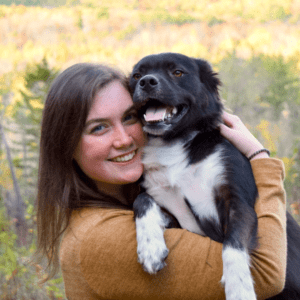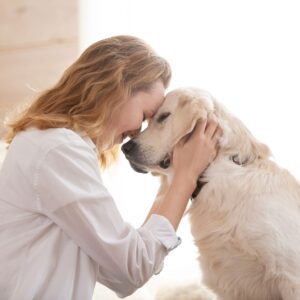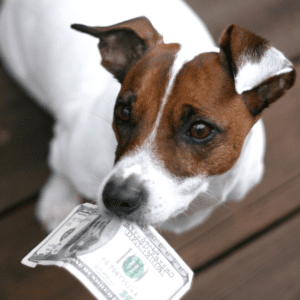The pet care industry is a largely unregulated one; an issue that is a bone of contention for professional dog business owners in the UK, and for which many are howling for change.
And with good reason.
However, when it comes to animal boarding, it is a legal requirement under the Animal Welfare (Licensing of Activities Involving Animals) (England) Regulations 2018 that business owners who operate the care of animals in their home or business place on a boarded basis, daytime or overnight, must legally obtain a licence from their local authority; think doggy day care, dog boarders and kennels.
It does not include dog walkers, groomers, or dog sitters (where they come and stay in the pet’s home) in that singular capacity, however if the company also offers boarding or day care services, they must hold a valid licence. It also includes 3rd parties who arrange any boarding activity.
It is the position of Wooflinks – The Home of Dog Professionals, that leaving your dog in the care of an unlicensed business is an absolute NO-GO.
The reason licences are so important are numerous, but overall, the possession of a valid, up to date licence should mean that you are leaving your precious pet in the hands of a professional; someone who takes the care of your pet extremely seriously, and have been checked over numerous health, safety and welfare criteria that include, but is not limited to, the following:
Animal Welfare
The premises must meet high standards in terms of accommodation, space, cleanliness, hygiene, and appropriate care. This helps prevent neglect, abuse, and poor living conditions for the animals.
Health and Hygiene
Requirements often include regulations related to disease prevention and control. Proper sanitation, vaccination records, and health checks are crucial to maintaining the health of the animals in these facilities and preventing the spread of diseases.
Emergency Protocol
Licensed facilities must have procedures in place for emergencies, such as medical issues, natural disasters, or fire. This ensures that animals are cared for and protected during unexpected situations.
Security
Considerations must be taken for considerations for both the animals and the people working in or visiting these facilities. Adequate fencing, proper handling procedures, and staff training help prevent accidents, injuries, and escapes.
Compliance
A valid licence is proof that a premises adheres to specific standards and regulations. This makes them accountable for their actions and provides a means for the licensing authority to monitor their operations. It also allows for follow-up inspections to ensure standards are upheld.
Crime prevention
Licensing helps to regulate and minimise the presence of unregulated, illegal, or substandard facilities that may not prioritise animal welfare.
Documentation
Licensed facilities are required to maintain detailed records of the animals in their care, including vaccination records, medical histories, and contact information for owners which helps to keep animals safe.
Community Relations
Licensing ensures the responsibility of the business to help prevent disturbances due to noise, odour, and other issues that might arise from improperly managed animal care operations.
To obtain a licence, a dedicated council officer must physically visit the business address, and the business owner will undergo a rigorous process to ensure both themselves and the premises are suitable. They then receive a licence, license number and star rating which stipulates the permissible activity of the business (including how many dogs they can house, etc) which must be clearly displayed. Once issued, they are valid from 1 up to 3 years.
With the importance of welfare of dogs at the heart of what every true dog professional does, the question we must ask ourselves is, “Why would a professional dog boarding business not obtain a valid licence?”
To operate without a licence is not only illegal and invalidates any insurance, but also morally wrong on the behalf of the dog entrusted.
Always check your dog boarder, kennel or day care has an up to date, valid licence.
The absence of a valid licence should tell you everything you need to know.
Find a licensed dog professional on Wooflinks – The Home of Dog Professionals.
NB: At Wooflinks, we only advertise professional partners who adhere to the law of animal licensing. We are not a licensing authority, and therefore are not qualified to perform checks on the validity of licences, however, we do insist that all businesses who legally require a licence display their licence number on their profile, and they may even upload a copy of their licence to their profile if they should wish to do so. Please note that the only authority able to confirm or deny a valid, up to date animal boarding licence is the district council under which the business falls.
Sources: www.gov.uk









The Hidden Costs of Dog Ownership: What Every Pet Parent Should Know - Wooflinks
08/10/2024 at 9:56 am[…] Animal licensing – why choosing a licensed dog boarder is non-negotiable for responsible dog owner… […]
Add a comment